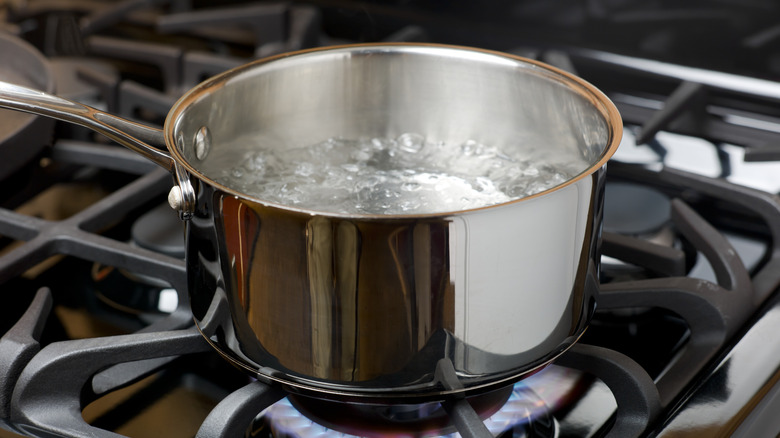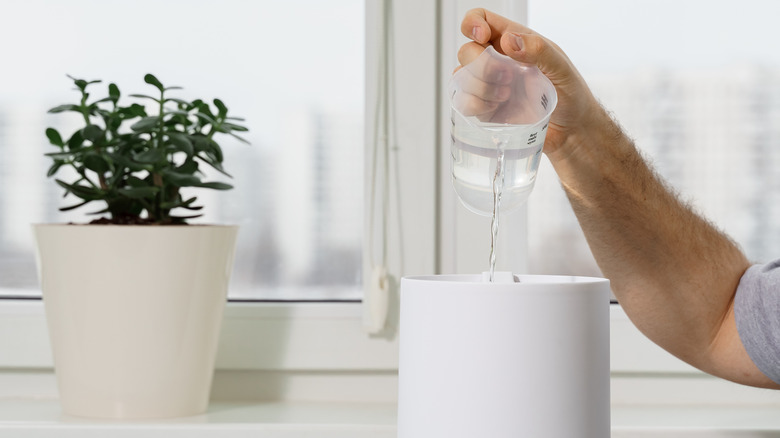Here's How To Make Your Own Distilled Water At Home. It's Easy
Distilled water is like regular water that has been purified through a process called — you guessed it — distillation. This method removes impurities like minerals, salts, bacteria, and other contaminants. You boil the water while collecting the steam which, as it condenses, becomes distilled water. The result is water that is free of minerals, bacteria, and chemicals that can build up over time. What's the point, though? This purified water is used in labs and for things that require sterilization like medical procedures, infant formula, cosmetics, and more. As a home cook, you might notice that it's also needed for cleaning certain appliances.
Making distilled water at home is easier than you might think, and you don't need to be a scientist to pull it off. Start with a large pot, and fill it with regular tap water. Then, find a smaller, heat-safe bowl that can sit inside the pot without touching the water — this is where your distilled water will collect. Place the lid of the pot upside down over the pot, creating a slight slope, and fill that up with ice. When the water boils, steam will rise, meet the cold lid, condense, and drip into your bowl. Voilà — distilled water! Avoid lettings the bowl get contaminated with the water in the pot, and you should be all set with around a cup of distilled water every half hour or so.
What to use distilled water for
So, distilled water isn't exactly what you want for sipping on a hot summer day, but it's definitely handy in certain situations. You can drink it, and you might expect it to taste great since it's all pure, but you'd be surprised to find the water tasting pretty plain. Yes, water is already bland itself, but without certain minerals like sodium and calcium, it won't have the same taste it normally does.
Instead, distilled water is the go-to for all sorts of water-using appliances like steam irons, humidifiers, and even high-end kitchen gadgets like steam ovens. It doesn't leave mineral deposits behind, which helps keep these devices working longer and more efficiently. It's also great for cleaning. If you've ever had to deal with mineral deposits in your coffee maker, iron, or even on glass and windows, distilled water helps avoid that buildup that regular water leaves behind.
Should you cook with distilled water? The short answer is no, you probably shouldn't. While distilled water can be useful for things like brewing beer, its lack of important minerals can alter your dish's taste too much. So, while distilled water may not be the best liquid to brew your coffee with, or an ideal liquid for boiling pasta, it does a great job in a variety of specialized uses. And, you don't have to run to the store when you need it. Just grab your pots, water, a little bit of patience, and you're set.

